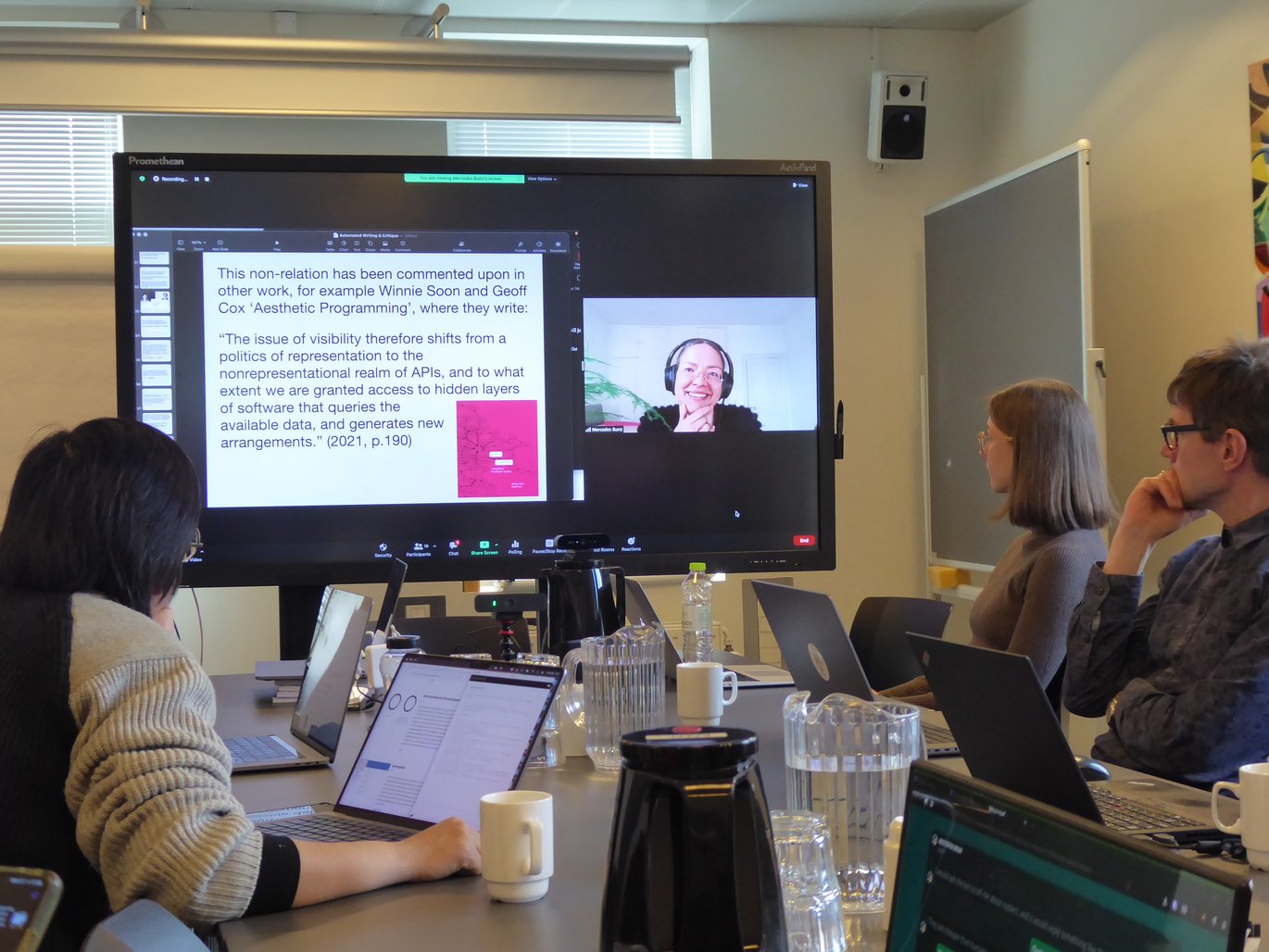Workshop summary: 'Automated Writing'

Texts and authors are mutually interdependent. When engaging with texts, whether fictional or non-fictional, we assume that they are written by one or several human authors. At least this is how it used to be – but what happens when authors are replaced by computers? Machine learning and AI is changing communication and text production on a large scale, urging us to ask these kinds of questions both within academia and the tech-industry as well as in the artistic world.
Engaging with the field from an interdisciplinary perspective was precisely the purpose of the recent Human Futures workshop on ‘Automated Writing’. Researchers from a broad range of disciplines, creative artists, and representatives from the AI industry were gathered (in person and online) at AU Kasernen on March 29, 2022, to discuss the current landscape and future perspectives of automated writing.
Reader in Digital Society and Deputy Head of the Department of Digital Humanities, King’s College London, Mercedes Bunz, initiated the workshop with a discussion of digital technologies, automation, and the difficulties of critique, challenging established critical approaches. Following on from the academic perspective, machine learning engineer at the AI company Hugging Face, Leandro von Werra, provided insights into the current state of Natural Language Processing (NLA) and ‘the modern paradigm’ of transformers within the industry, emphasizing the importance of international cooperation for the future development of language models.
Besides highlighting the importance of bringing together scholarly and industrial perspectives on the topic of automated writing, the workshop demonstrated how the questions raised within these fields can gain much from engaging with the work of creative artists. As an Assistant Arts Professor at NYU, computer programmer and poet, Allison Parrish represents several of these perspectives, however, her workshop presentation was based on her artistic work on computer generated ‘dawn poetry’, simultaneously raising critical questions about ecology and gender bias in the realm of machine learning.
Last but not least, visual artist Kristoffer Ørum epitomized all of these critical discussions and perspectives on human interaction with computational writing in his closing performance, a staged written/spoken dialogue between human and machine.
During the whole workshop, discussions among all participants raised several interesting questions on how this highly relevant and quickly developing field should be approached, not least from a humanities perspective. Adding even more critical perspectives rather than definite conclusions, the workshop outcome ended up reflecting its topic: a vibrant and constantly changing field, demanding scholars, creatives, and AI industries alike to continue to engage in a critical, interdisciplinary dialogue.
